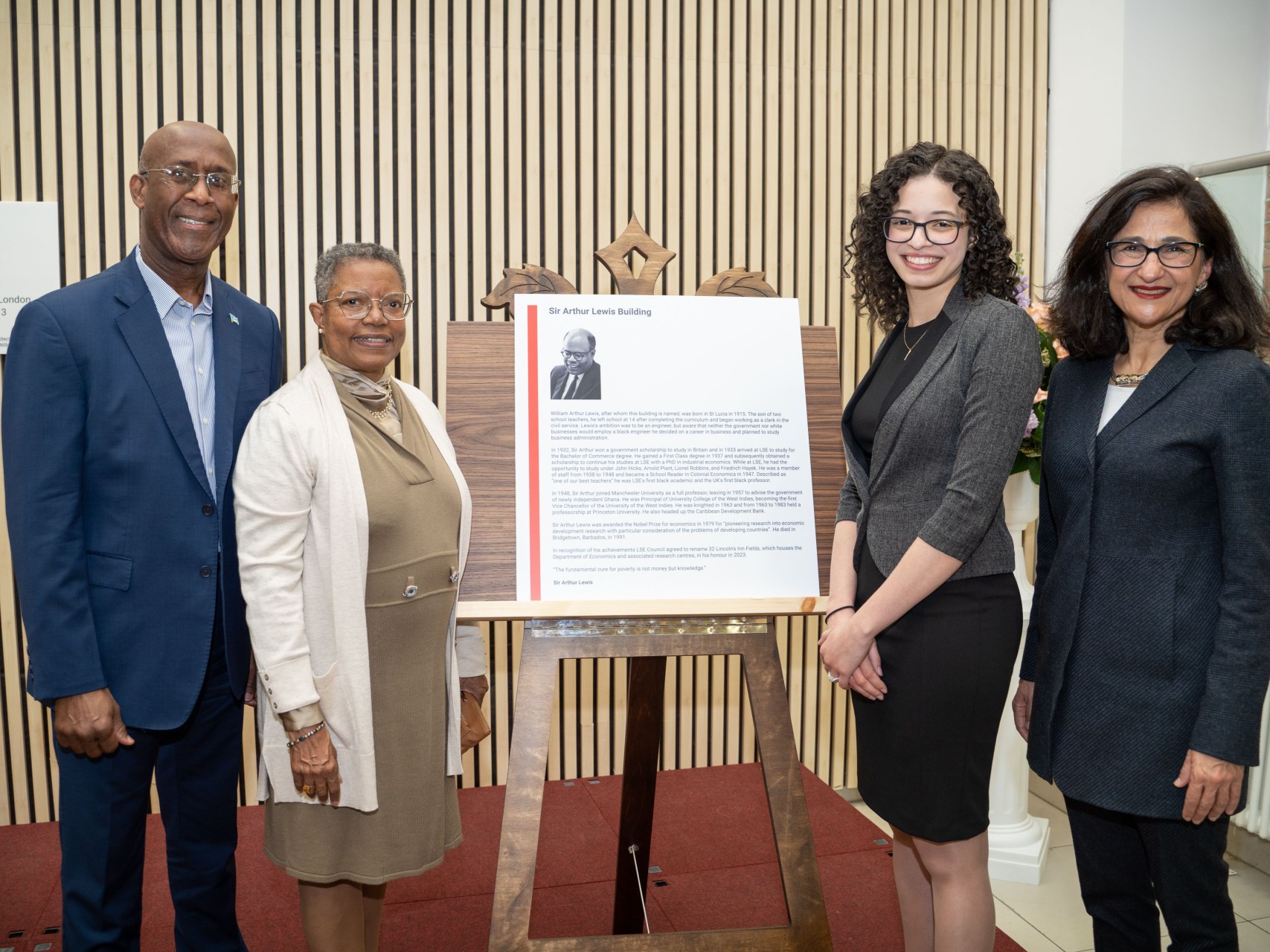 The building renaming ceremony
The building renaming ceremony
LSE has officially renamed one of its buildings after Nobel Prize winning economist and LSE’s first black academic Sir William Arthur Lewis (1915-1991), who studied, taught and researched at the School.
Formerly known as 32 Lincoln’s Inn Fields (32L) the site, now called the Sir Arthur Lewis Building (SAL), is home to various LSE departments including the Centre for Economic Performance (CEP), the International Growth Centre (IGC), the Department of Economics, the Centre for Macroeconomics, and the Suntory and Toyota International Centres for Economics and Related Disciplines (STICERD).
The newly-titled building was unveiled in a ceremony attended by Sir Arthur Lewis’ family, including his daughter and granddaughter, and the High Commissioner for St Lucia on Thursday 23 March 2023.
A speech given at the event by LSE President and Vice Chancellor Minouche Shafik celebrated Sir Arthur Lewis’ ongoing legacy at LSE and the enduring contribution he has made to development economics.
Born in St Lucia in 1915, Lewis won a government scholarship to study in Britain and in 1933 arrived at LSE to study for the B Commerce degree. He obtained a First-Class degree in 1937 and was awarded a scholarship to continue his studies, earning his PhD in Industrial Economics.
While at LSE, Lewis studied under John Hicks, Arnold Plant, Lionel Robbins and Friedrich Hayek. He was a member of staff from 1938 to 1948 and became a School Reader in Colonial Economics in 1947. Described as “one of our best teachers” he was LSE’s first black academic.
In 1948, Lewis joined Manchester University as a full professor, leaving in 1957 to advise the government of newly independent Ghana. He was Principal of University College of the West Indies becoming the first Vice Chancellor of the University of the West Indies.
He was later knighted in 1963 and from 1963-1983 held a professorship at Princeton University. He also headed up the Caribbean Development Bank.
In 1979, Lewis was awarded the Nobel Prize for economics for “pioneering research into economic development research with particular consideration of the problems of developing countries”. He died in Bridgetown, Barbados, in 1991.
Commenting on the re-naming, LSE President and Vice Chancellor Minouche Shafik said: “Sir Arthur Lewis was a pioneer in the field of development economics and an outstanding student, teacher and researcher at LSE. We are delighted to rename one of our buildings after him in recognition of his exemplary career and enduring legacy, both at LSE and beyond.”
Professor Sir Tim Besley from the Department of Economics added: “Nobody who studies issues in development can fail to appreciate Arthur Lewis’s legacy and his framing of development challenges as a process of structural change. We honour that legacy at LSE to this day with a dedicated cadre of economists who study development and growth issues. And we have many students from all over the world who come to the LSE study and research in development following in Arthur Lewis’s footsteps.”
To find out more about Sir Arthur Lewis and his time at LSE, please visit the LSE History blog.
You can also watch a video about Sir Arthur Lewis and his enduring legacy.